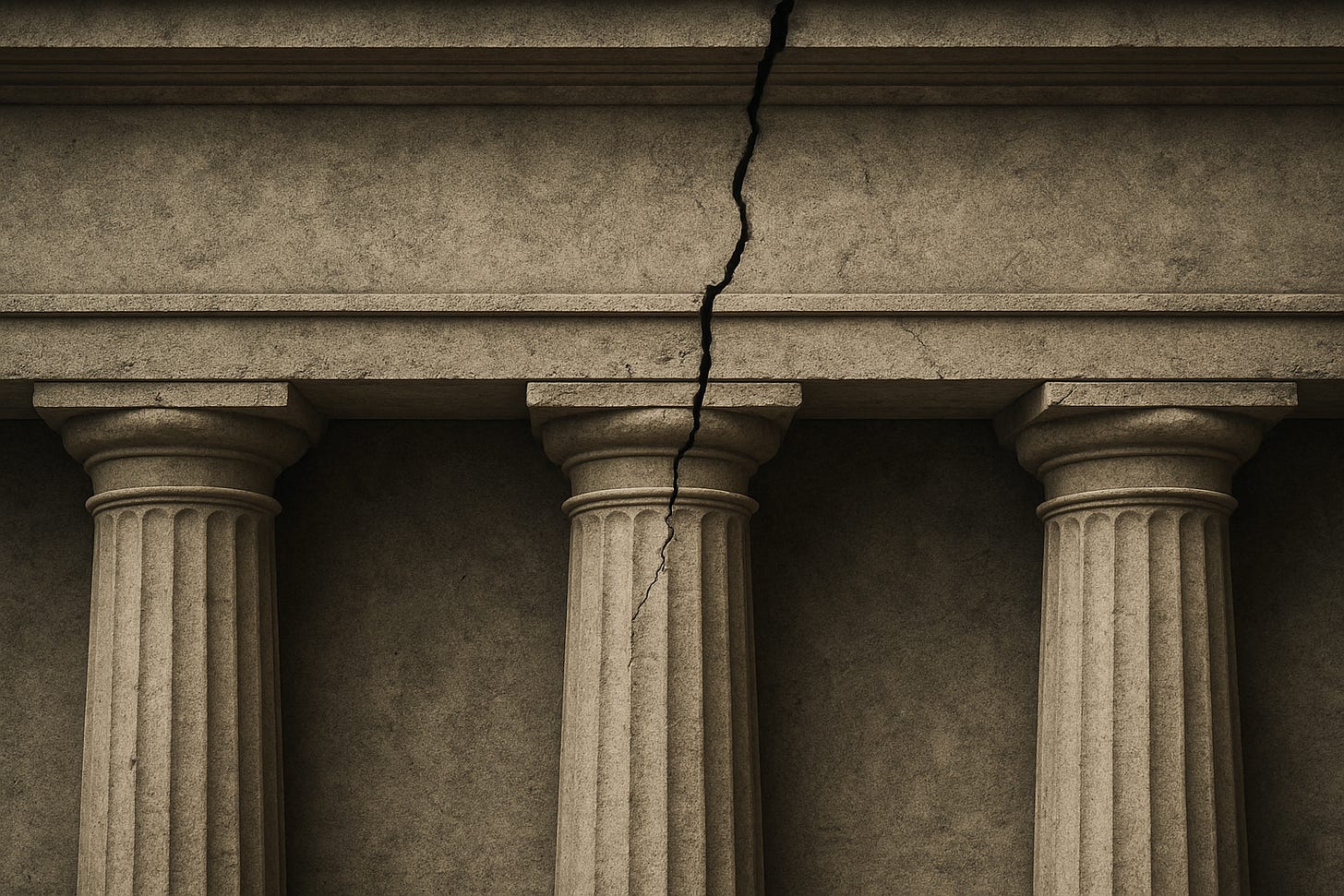Cracks in the Foundation
How the weakening of journalism and civics threatens the democratic project
The news industry is going through something. A long, painful transformation that’s left it shaky, unsure of its role, and—at times—dangerously hollowed out.
But this isn’t just about job cuts or shuttered newspapers. What’s happening to journalism isn’t just a media story—it’s a democracy story. Because when the press weakens, the foundation of the coun…



